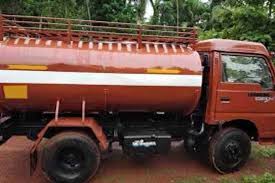Exhauster services in Nairobi typically refer to companies that provide services related to septic tanks, pit latrines, biodigesters and other waste management systems, CALL 0721155332. These services may include:
- Septic Tank Emptying: Regular pumping and emptying of septic tanks to remove accumulated solids and sludge, preventing blockages and overflows.
- Pit Latrine Emptying: Emptying and cleaning pit latrines to maintain hygiene and prevent odor and health hazards.
- Cleaning and Maintenance: Cleaning and maintenance of septic systems, including inspection for leaks, blockages, or damage.
- Repairs and Installations: Repairing damaged septic tanks or pipes and installing new systems as needed.
- Emergency Services: Responding to emergencies such as overflowing septic tanks or blocked drains.

The history of sewage management in Nairobi reflects the city’s growth and development over the years and thus the need of exhauster service in Ruiru. Here’s an overview:
- Early Settlement and Informal Systems: Nairobi, initially established as a railway depot in the late 19th century, saw rapid urbanization during the colonial period. However, formal sewage systems were lacking in the early days. Instead, informal systems such as pit latrines and rudimentary drainage channels were prevalent in the growing settlements.
- Development of Formal Sewerage Systems: As Nairobi grew into a major urban center, especially in the mid-20th century, the need for proper sewage management became apparent. Formal sewerage systems began to be developed to address the increasing population and sanitation challenges. The Nairobi City Council (now Nairobi City County Government) played a crucial role in planning and implementing these systems.
- Expansion and Upgrades for Exhauster services in Nairobi: Over the years, the sewerage infrastructure in Nairobi underwent expansions and upgrades to keep pace with the city’s growth. New residential and commercial areas were incorporated into the sewerage network, and existing systems were improved to meet modern standards.
- Challenges and Issues: Despite efforts to improve sewage management, Nairobi has faced several challenges over the years. These include inadequate infrastructure, illegal connections, pollution of water bodies due to untreated sewage discharge, and limited access to sanitation services in informal settlements.
- Current Efforts: In recent years, the Nairobi City County Government, along with various stakeholders, has been working to address the challenges and improve sewage management in the city. This includes investments in infrastructure upgrades, public awareness campaigns on proper waste disposal, and initiatives to provide sanitation services to underserved areas.
- Future Prospects: As Nairobi continues to grow and develop, sustainable sewage management will remain a priority from Exhauster services in Nairobi. This may involve further expansion of sewerage networks, investment in wastewater treatment facilities, and integrated approaches to address sanitation issues comprehensively.